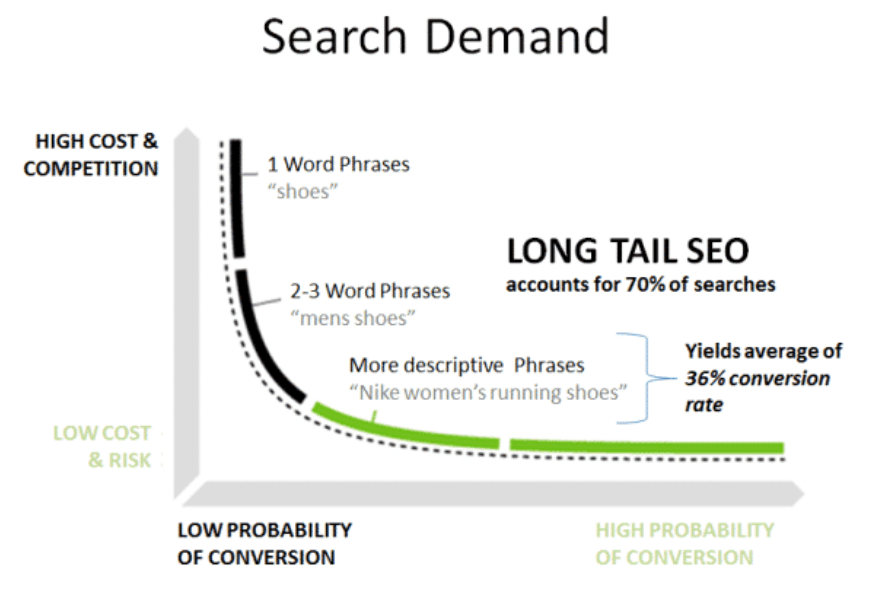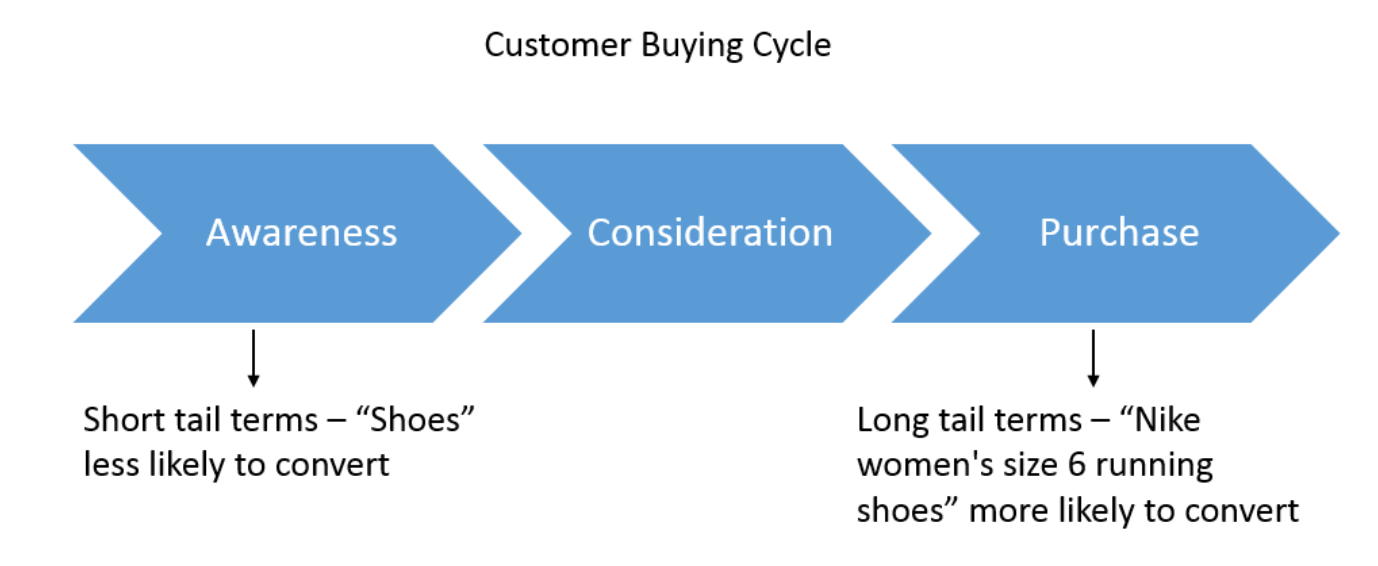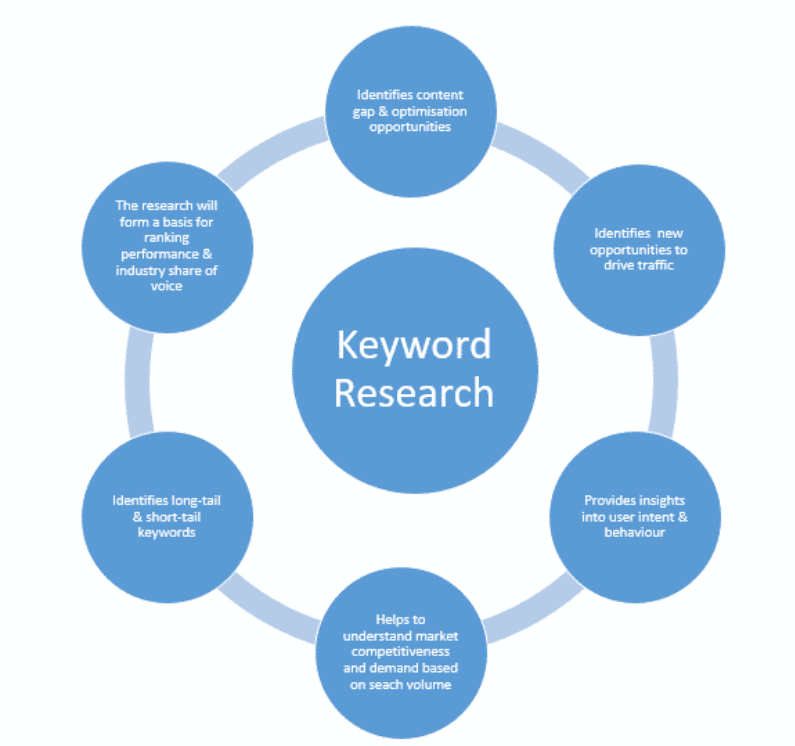What Are Short and Long-Tail Keywords?

Short-tail terms are comprehensive. For example, plugging the term “shoes” into a search engine would provide generic results and very difficult to rank organically due to high competitiveness. Only focusing on attaining traffic from these short-tail terms will usually bring traffic less likely to convert. This is because most broad-term searches are based on consumers who have likely just started their conversion journey and are in the “awareness” phase, making them less inclined to convert.
Long-tail terms are more specific, such as “Nike women’s size six running shoes”. These terms usually have lower competitiveness rates about broad terms, which often makes it easier to rank organically. A greater benefit of targeting these long-tail terms is that consumers searching in this space are more likely to convert and are closer to the “purchase” stage in the decision process.

Why Is Keyword Research Important?
Keyword research is (or should be) the initial stage of any SEO campaign.
The results from the keyword research process play a large role in shaping the digital marketing strategy for the following reasons:

Process
Now that all the main benefits of keyword research have been briefly covered, it would be beneficial to explain the process of identifying these opportunities. Generally, the keyword research process can be broken down into three stages:
- Discovery: The process of identifying, discovering and exploring all the possible keywords and phrases that are relevant to the target audience and are also in the scope of the client’s services or products.
- Grouping Keywords: Once discovery is complete, general categories of central themes and sub-themes are created, and keywords are organized and sorted into these groupings.
- What is a theme and sub-theme for keywords? Theming and sub-theming are sorting individual keywords into groups that fall into semantic similarity, intent or other predefined conditions. These groups go from broad to a specific grouping convention, as shown in the table on the left.
- What’s the purpose of doing this? The main benefit of grouping keywords into main themes and sub-themes is the data is made more accessible to understand, provides more significant insights and makes conclusions actionable.
- Further Application: Outcomes of the keyword research will form the basis of SEO and other digital marketing strategies, such as identifying traffic and content optimization opportunities.

How Does Indago Get Even More Actionable Data Out of Keyword Research?
We apply the same three steps outlined above in the keyword research process and include an additional analysis method in the grouping stage called “flagging”. Flagging is the process of providing additional sub-themes titled as “flags” which are designed to include added important characteristics to make the keyword data more actionable.

How is this data more actionable?
Each added flag has provided additional layers of information (which may have been previously overlooked), which makes the data more actionable.
Having these flags provides additional opportunities in the following SEO areas:
- Content: Editorial flags highlight potential keywords for editorial opportunities. Content can be created around the editorial keywords to drive additional traffic to a website. For example, “receptionist interview questions” could be created into an article or page titled “Top 10 most common receptionist interview questions and how to answer them”.
- Ranking opportunities: Flags make it easier to identify keywords and tactics to potentially rank for them, like using the editorial approach mentioned above to rank for “receptionist interview questions”.
- Tracking Keyword Performance Over Time: These themes and flags provide greater insights and data variety because the keywords can be monitored, isolated and bench-marked in greater detail. For example, with the keyword data set above, these are the possible data sets that can be created, isolated and bench-marked over time:
- Broad Theme: recruitment, interview, hiring & employer
- Profession (Sub-theme): IT & technology, office & administration
- Editorial: Receptionist duties and receptionist interview questions
- Location: Sydney & Melbourne
- Intent: B2B
- Intent: B2C
Written by
Brίd Flynn





